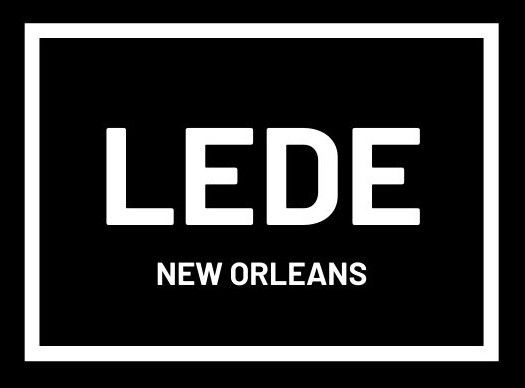What it takes to heal
What does it mean to be mentally well? Fellow Kila Moore reflects on their personal journey toward mental health.

Behind This Story
This article is part of "Get Ya Mind Right," a multimedia content series and event exploring mental wellness and mental health care access in New Orleans. The series was produced by the Fall 2022 Lede New Orleans Community Reporting Fellows who spent 16 weeks researching, completing interviews and documenting local stories around mental health and mental wellness. If you or someone you know is struggling or in crisis, help is available. Call or text 988 or chat 988lifeline.org
By Kila Moore
In May 2021, I realized the rigid structure of school and community that I had known all of my life was gone. I had just graduated from Tulane University and had a full-time job working for a nonprofit organization in New Orleans. I was living alone, and I felt isolated. My family lived 180 miles away in Mississippi. Most of my friends began their careers and moved to other parts of the country. For the first time in my life I had no choice but to sit with my own thoughts, uninterrupted by school deadlines, cross country practice and math competitions.
I fell deep into solitude, which led to a constant whirlwind of thoughts, panic spells and insomnia. I coped by writing in my journal. I learned about meditation and breathing practices from TikTok and Instagram, and tried to apply them to my own life. I prayed, leaning on the teachings of my upbringing in the Bible Belt. I had navigated high school as a “high-achieving” student with good grades and incessant extracurriculars. Everyone thought I was fine. But I had never developed any type of solid system to care for my mental health. What would it look like for me to tend to my mental health? What did it even mean to be mentally well?
I reflected on all of these things as I sat listening to New Orleans Youth Alliance’s Ahmaad Lott on a recent Saturday in a small garden in Audubon Park’s meditation garden. My peers and I were interviewing him and Nakeshia Buckner, another NOYA fellow, about what mental health means to them. (Click here to watch our interview with Lott and Buckner.) Lott’s story sounded all too familiar — a “gifted” student whose struggles had been masked by academic success. I wondered how many others shared our experience. How many young adults are defining what mental wellness means to them for the first time?
This fall, my Community Reporting Fellowship peers and I will be talking to more community members like Ahmaad. We will explore how locals think about mental health and what mental health means to them. We will document what resources are available and what resources community members say they need. Through this journey, I hope we can deepen the conversation around mental health access and create openings for people to address mental health needs.
As I continue to examine what mental wellness looks like for me, I will join other community members as they describe what mental wellness looks like for them. Together, we will discover what it takes for our community to heal.
Kila Moore is a journalist based in New Orleans and a Fall 2022 Lede New Orleans Community Reporting Fellow. Moore, 23, is from Jackson, Miss., and currently works in development at Son of a Saint. Moore, a Tulane University graduate, was the first Black news editor of the Tulane Hullabaloo and co-hosted a podcast called Your Token POC with a friend, where they detailed their experience navigating predominantly white spaces as people of color.
This article is available to republish under a Creative Commons license. Read Lede New Orleans’ publishing guidelines here.
Support Lede New Orleans and its community-centered reporting by becoming a supporting donor.

